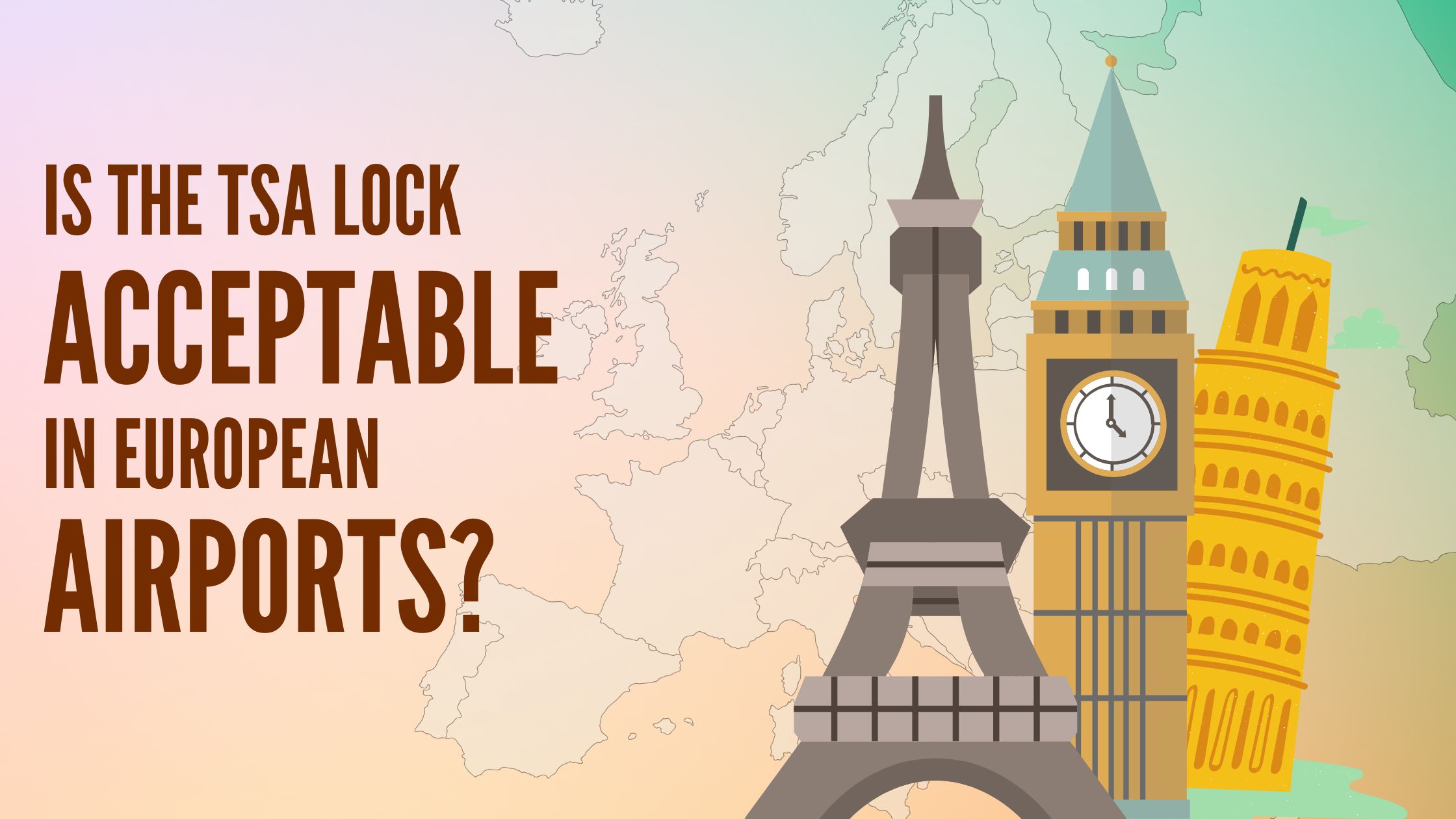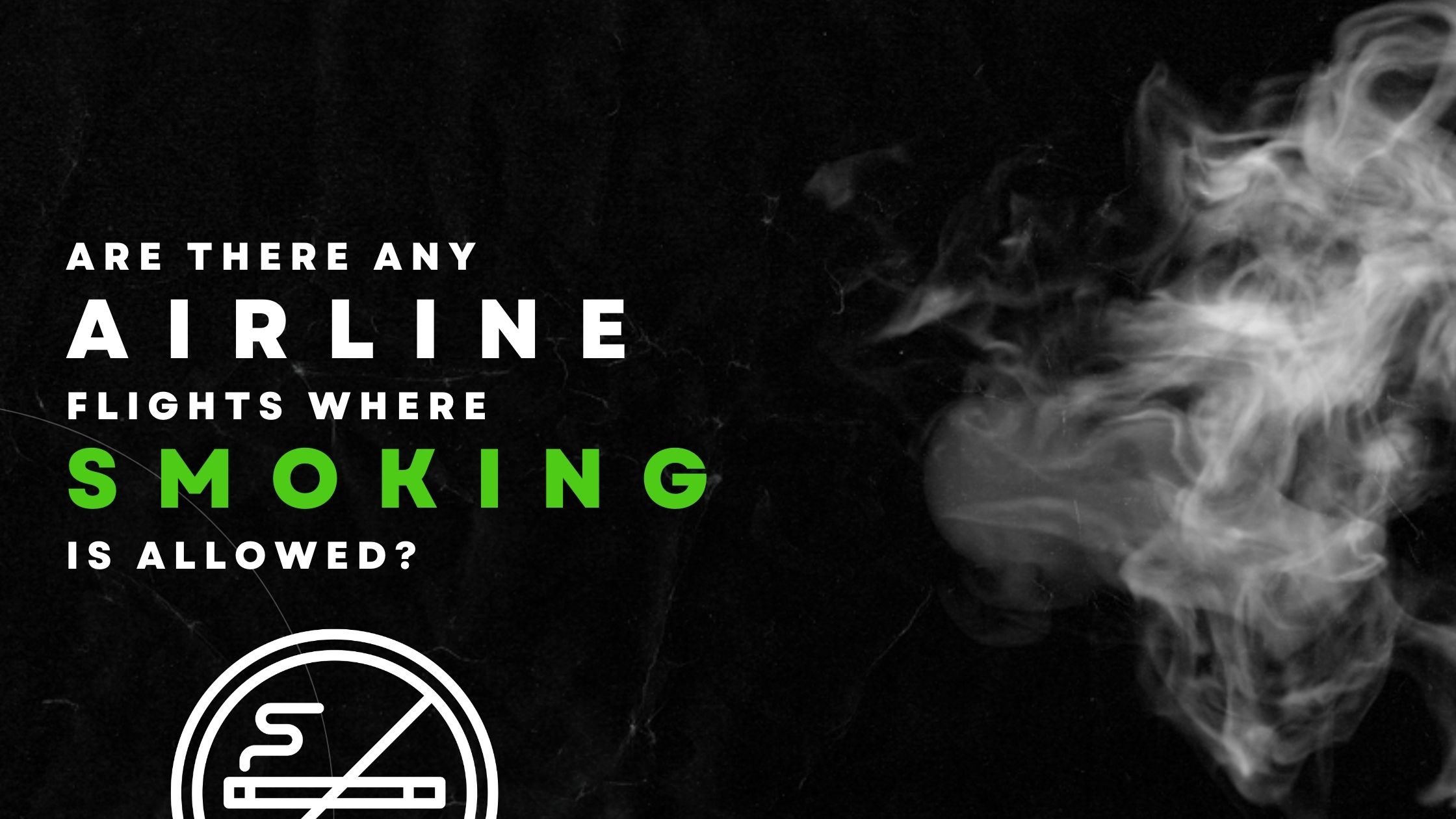Many travellers opt to use TSA locks on their suitcases, which can be opened by TSA agents if necessary for inspection. However, if you plan to travel to Europe, you may be wondering “Is the TSA lock accepted in European airports ?” or if you need to use a different type of lock.
In this article, we will examine whether TSA locks are acceptable in European airports and provide you with the information you need to ensure a stress-free and secure travel experience.
Is The TSA Lock Acceptable In European Airports?

Photo by Phil Mosley on Unsplash
The answer is yes, the TSA lock is acceptable in European Airports. However, there may be some differences to note when using them. The main difference between TSA locks and regular padlocks or combination locks is that TSA agents do not have access to the keys.
This means that if a bag needs to be inspected, it’s up to the traveller to open it for inspection.
In many cases, this isn’t an issue since airport staff will simply ask for permission from the traveller before unlocking the bag.
However, if a lock needs to be cut off for inspection, the traveller may face some inconvenience.
It is also important to remember that TSA locks are not technically prohibited in European airports.
In fact, they can be used as long as travellers are aware of the differences discussed above and are prepared to open their bags for inspection if necessary.
Overall, it’s perfectly acceptable to use a TSA lock when travelling to Europe. It’s just important to keep in mind that airport staff may not have access to the keys.
Hence, travellers should be prepared to open their bags for inspection if necessary.
This way, they can make sure their belongings stay secure while also keeping compliant with airport regulations.
Do All European Airports Accept TSA Locks?
The answer to this question is not so straightforward. TSA locks are accepted in some European airports, but not all of them. It’s important to check with your individual airport or airline to know their specific policies on baggage locks before you travel.
TSA locks are commonly used in the United States and adhere to a standard security system that allows security personnel at the airport access to inspect checked luggage without damaging the lock.
This system is not adopted by all European airports, which means that they may require different types of baggage locks or have other regulations in place for secure luggage storage.
When travelling from an American airport, it’s usually safe to use your TSA lock since these will be accepted in most cases.
However, if you’re heading to Europe, it’s best to double-check with your airport or airline before you depart.
They will be able to provide you with the most up-to-date information on their security regulations and whether TSA locks are accepted.
What Happens If A European Airport Doesn’t Accept TSA Locks?
If a European airport does not accept TSA locks, the airport or airline may require travellers to remove the TSA lock and replace it with a different type of lock before checking in their luggage. They may also offer to seal the bag with plastic security wrap.
This can help ensure that it remains secure during transit.
Alternatively, if travellers are unable or unwilling to remove the TSA lock, then the airport or airline may choose to deny boarding or refuse to transport the luggage.
While this may be inconvenient for travellers, it is essential that airports comply with their security regulations in order to protect passengers.
It’s important to be familiar with the TSA lock requirements before departing for Europe to avoid any complications at the airport.
If you’re unsure, contact your airline or local embassy and they will be able to advise on the necessary steps to take.
Are TSA Locks Approved For International Travel?
Many travellers opt for TSA-approved locks as they are designed for use with the Transportation Security Administration (TSA) systems in the United States. However, not all countries use the same security systems as the TSA, so it’s always a good idea to check with the specific country or airline.
Some countries may require you to use a different type of lock that is compatible with their own security system.
Additionally, some airlines may ask that all locks be left unlocked while travelling, while others may accept TSA-approved locks.
It’s also important to note that TSA locks are not suitable for all forms of international travel.
For instance, some countries may require travellers to use a padlock with a combination or key code lock.
It’s best to check with your airline and the country you plan to visit in order to ensure that you have the right type of lock for your trip.
Overall, TSA-approved locks are typically compatible with most security systems used by airlines and other countries around the world.
However, it’s always wise to double-check the specific regulations applicable to your destination before packing up for an international trip.
Do European Airports Open Checked Baggage?

Photo by American Green Travel on Unsplash
The answer is yes – European airports have security procedures in place to ensure the safety of passengers and crew. Airport security personnel may open checked baggage for a variety of reasons, including random searches, investigations into suspicious items or checks for prohibited items.
In some cases, your checked luggage may require physical inspection which would involve opening your suitcase or bag.
X-ray machines or other scanning equipment may also be used to inspect your luggage before it can be accepted for transportation.
All these measures are designed to keep passengers safe on their journeys through European airspace.
If you have any questions about airport security procedures at the airport you will be travelling through, please contact the airport directly for more information.
By being informed and prepared, you can help make sure your journey goes as smoothly as possible.
Are TSA Locks Safe?
TSA Locks can provide security for your luggage, but it’s important to remember that no lock is 100% foolproof. Though the locks are designed to be tamper-resistant, determined thieves may still be able to bypass them. Additionally, airport security personnel may break the lock in order to inspect your luggage.
That is if they cannot open it with the master key, which can damage the lock.
Therefore, while TSA locks offer an extra layer of protection for your belongings, they are not completely impenetrable.
It is ultimately up to you as a traveller to decide whether or not you want to use a TSA lock on your bag.
While these locks provide an additional measure of safety and security, they cannot guarantee that your luggage will not be accessed or tampered with.
How Do You Know If A Lock Is TSA Approved?
Generally, the easiest way to identify a TSA-approved lock is by looking out for the Travel Sentry logo. This logo can be found on any locks that are approved by the Transportation Security Administration (TSA) and other aviation security agencies.
Travel Sentry was established in 2003 and works with manufacturers of travel security products to develop standards used in travel security.
These standards are applied to various types of locks, including padlocks and combination locks, which are then approved by the TSA.
When looking for a TSA-approved lock, be sure to check for this logo – it should be clearly visible on the packaging and the lock itself.
When purchasing a new lock, always make sure that you double-check it is both Travel Sentry and TSA approved.
This will ensure that your belongings remain safe and secure when travelling by air.
Keep in mind that if you purchase a lock without either of these logos, it will not be accepted at security checkpoints and your luggage may be opened or damaged during transit.
Can You Lock Your Luggage On A Domestic Flight?

Photo by Maxim Zhgulev on Unsplash
Yes, most airlines allow passengers to use TSA-approved locks or other security seals when travelling domestically within Europe. These specialized locks are designed to allow airport security personnel access to inspect luggage without damaging the lock itself. However, some airports have more stringent security rules than others.
This may require travellers to leave their luggage unlocked at check-in.
It is also important to note that any type of self-locking device fitted onto your luggage (such as a padlock) must be removed before boarding since such devices are not accepted on flights in Europe.
To ensure a smooth and safe journey, it is advised to check with your airline before travelling to understand their exact policies regarding locks on luggage.
With the proper information and preparation, you can enjoy an enjoyable flight knowing that your luggage is kept secure.
Can You Lock Your Luggage On An International Flight?
Yes, you can lock your luggage on an international flight. As the name suggests, these locks are approved by the Transportation Security Administration (TSA) and allow airport security to inspect your bags without having to cut open your lock and damage the baggage.
With a TSA-approved lock, agents have access to special master keys that will unlock them so they can conduct their inspection and then re-lock your bag afterwards.
This means no damaged locks or lost personal belongings!
However, if you don’t use an approved lock and your baggage needs to be opened for security checks, it could get cut open which could result in damage or loss of items inside.
So, if you’re flying internationally, it’s best to invest in and use a TSA-approved lock to ensure your belongings arrive safely.
To make sure your locks are approved, look for the Travel Sentry logo or the “TSA Accepted” mark on the packaging.
You can also contact your airline beforehand to confirm which type of locks they accept.
Why Did TSA Cut Your TSA-Approved Lock?
The Transportation Security Administration (TSA) is tasked with ensuring travellers’ safety and security when travelling through the United States. If your bag is locked but cannot be opened without damaging the lock or baggage, then it must be cut open in order to screen its contents.
This process will not damage the zippers or zipper pulls of soft-sided bags, though any other locks may suffer damage as a result of being forced open.
It’s important to note that if an officer finds that a bag is unlocked, they will never force it open.
But if the bag does require opening for security reasons, the TSA will be sure to use an approved method.
So if your TSA-approved lock has been cut, rest assured that it was done for safety and security reasons only – not in order to cause any damage or inconvenience to you.
If you have had your lock cut by a TSA officer and would like more information about the process, please contact the agency directly.
They will be happy to answer any questions you may have and provide further clarity into why this procedure is necessary.
Conclusion
In conclusion, when travelling to Europe, it’s essential to be aware of the security regulations and guidelines that apply to your luggage. If you plan to use a TSA lock on your suitcase, it’s important to note that while it may be acceptable in some European airports, it’s not always the case.
If your TSA lock is not permitted, you may need to consider using a different type of lock that meets the necessary security standards.
By taking these steps, you can help ensure that your luggage remains secure during your travels and enjoy a hassle-free experience.






![[Fixed] United Airlines Joined My First Name And Middle Name On Boarding Pass](https://www.adventurespedia.com/wp-content/uploads/2023/03/Fixed-United-Airlines-Joined-My-First-Name-And-Middle-Name-On-Boarding-Pass.jpg)
